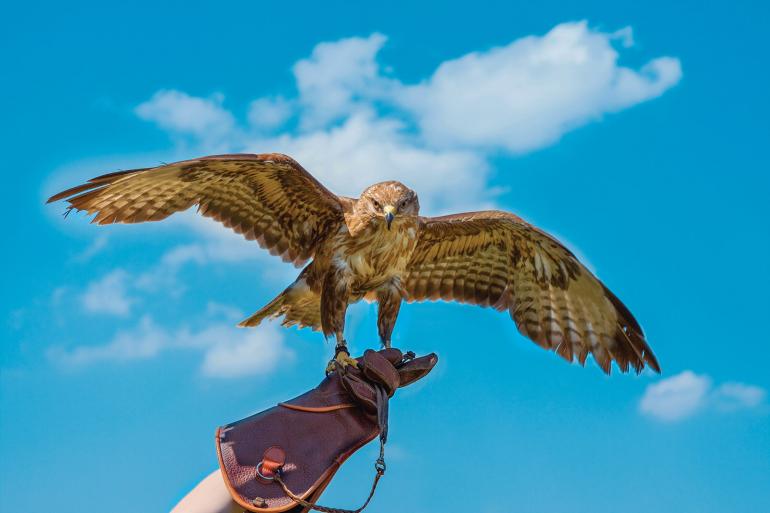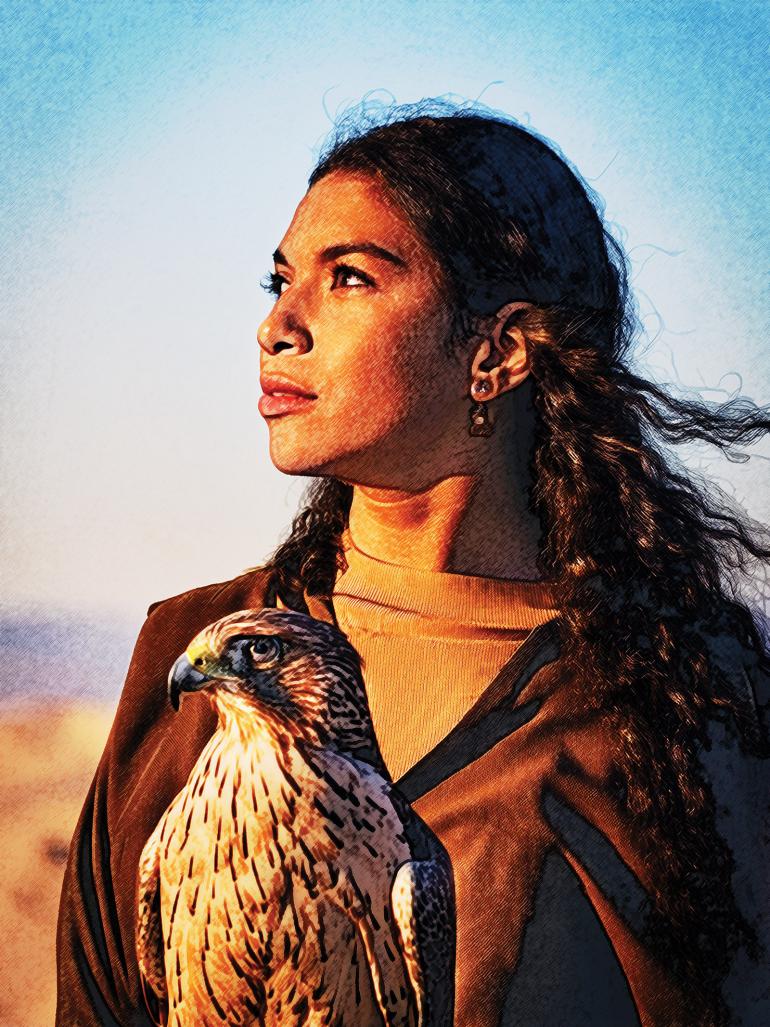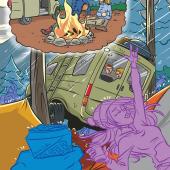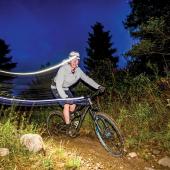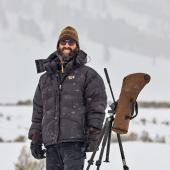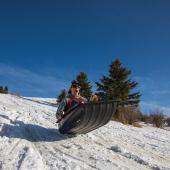Flying on Unclipped Wings
How falconry taught one woman the art of letting go.
The moment I mention falconry to someone, I see wonder flash behind their eyes, and I brace for the barrage of questions that will inevitably follow:
“How did you get into it?”
“How do you catch the bird?”
“Does it bring stuff back to you?”
“How do you get it to come back?”
By the end of these conversations, I am usually dubbed something akin to “Bird Girl.” I wear the title with pride.
In my first season as an apprentice falconer, I’ve realized that the sport has taught me about much more than simply hunting alongside a hawk. It’s taught me patience—a particularly handy trait when your bird has posted up in a tree and refuses to come down—and to pay attention to the small details (e.g. birds are notorious for hiding their illnesses). One particular lesson, however, still makes me quiver in my boots: letting go.
She’s free, after all, and she can decide where she goes and if it’s worth it to return to me.
Admittedly, I’m a control freak. I typically prepare for the top five to ten worst-case scenarios in any situation, and I have a rehearsed script for all of my social interactions. I don’t want to control the people around me, but I do prefer being in charge of things like road-trip itineraries.
You know what doesn’t lend itself well to being controlling? Hunting with a wild, winged animal.
Each time I release my bird’s jesses and watch her disappear into a tree or after a fleeing pheasant, my heart shutters. She’s free, and she can decide where she goes and if it’s worth it to return to me. All I can do is provide bits of chopped quail and hope for the best.
Sometimes, she flies to a perch and watches the world below for what feels like an eternity. She’ll preen her feathers, take in the wind, or chase after something we’re not allowed to hunt. Other times, we’ll be perfectly in tune as I orchestrate the dance between pointer, bird, and environment. A pheasant flushes, she pursues, she misses, and comes right back to my fist, ready for another shot. On the worst days, she catches the wind and soars a mile or more away, and I spend hours looking for her, turning over those worst cases in my head.
She is wild, after all, and every time she returns, it’s a choice she makes. That choice, freely made, is worth more than any command obeyed out of fear or habit.
What if she flies off and never returns? What if she crashes into a power line or gets caught in barbed wire? What if a larger predator sees her as prey? The what-ifs are endless, and they don’t care that she is at a perfect weight or that I triple-checked the weather.
Life is like that, too. We can plan and agonize until we’re sick, but we can’t control how other people respond, how the traffic flows, if our cars break down, or when a family member falls ill. Likewise, we can’t control job layoffs, the government, taxes, what’s on sale at the grocery store, or the weather.
But letting go doesn’t mean giving up. In falconry, I can influence my bird’s decisions. I can train her, build a bond, and offer the rewards she loves. But I can’t force her to return; I can’t override her instincts or tether her spirit. If I tried, she wouldn’t be a partner—she’d be a prisoner. And that’s not falconry. That’s possession.
She is wild, after all, and every time she returns, it’s a choice she makes. That choice, freely made, is worth more than any command obeyed out of fear or habit.
Letting go doesn’t get easier. Every time I unclip the jesses, my stomach knots. Every time she lifts off and vanishes into the trees, I take a deep breath and remind myself that this is the point. It’s what makes falconry beautiful, terrifying, and humbling all at once.
And when she comes back—when I see her silhouette against the sky and feel the slap of her talons hit my glove—it’s a moment of connection that can’t be manufactured or guaranteed. It must be earned, day after day, with patience, trust, and the courage to loosen your grip.
When I let go of trying to hold everything in the perfect place, life becomes more enjoyable and free.
Outside of the field, this lesson has followed me like a shadow. I’ve started to see how tightly I hold things in my everyday life—relationships, goals, routines—and how much energy I’ve spent trying to secure the uncertain. I still overthink text messages. I still rehearse conversations. But more and more, I try to leave space for the unpredictable—for people and things to surprise me, to teach me, to change on their own terms. I’ve started channeling that need for control into fostering the things I can control: spending time outside, learning new things, eating things that are good for me and give me joy, fostering personal connections, and watching other people glow in their autonomy. When I let go of trying to hold everything in the perfect place, life becomes more enjoyable and free.
In falconry, the bond is not built through force. It’s built through freedom. And that’s a lesson I’ll carry with me long after the hunt is over.

